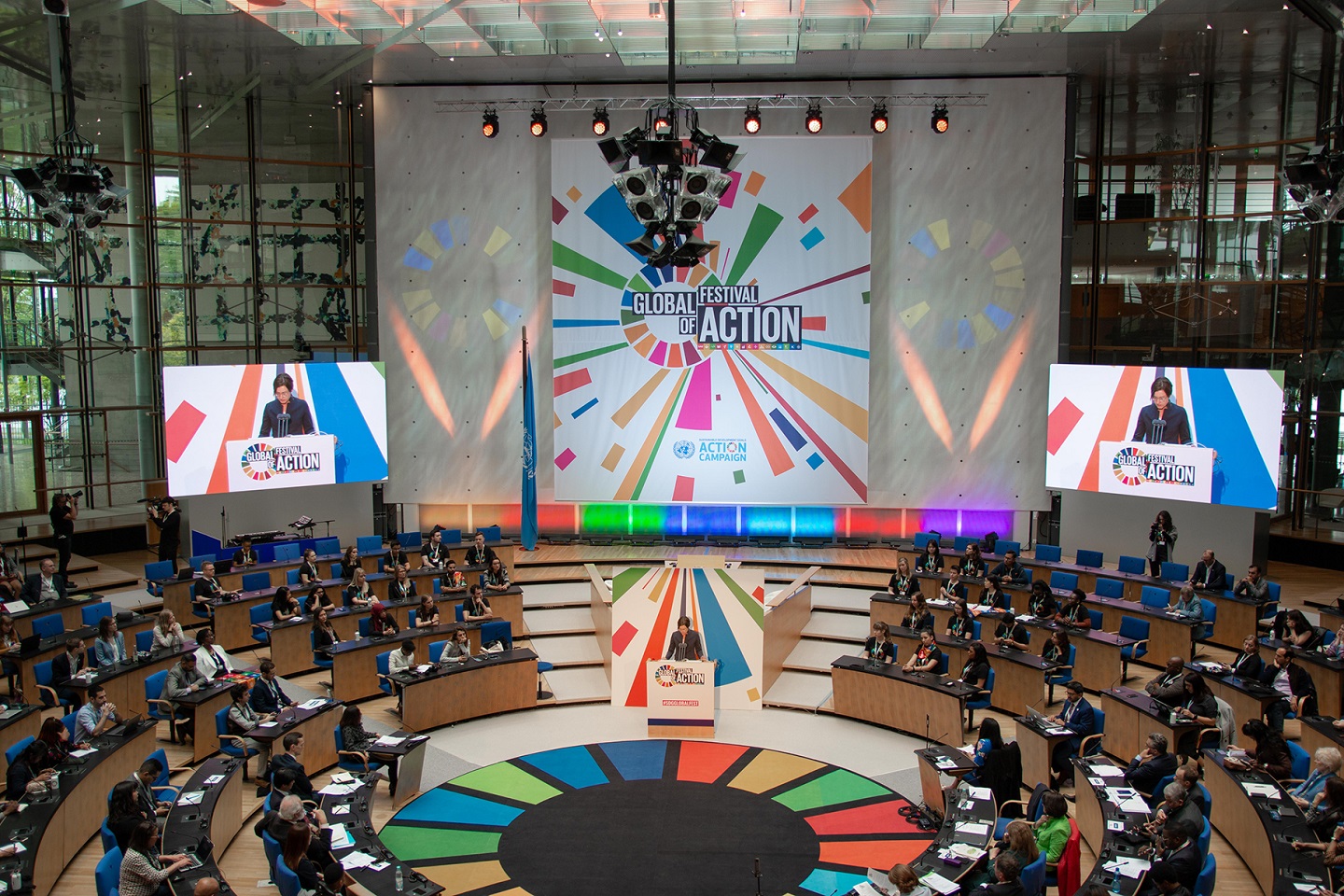
Climate Crisis: Moving from promises to action
As the United Nations just held its “Climate Action Summit,” it is clearer than ever that the climate crisis needs to be addressed by the concerted efforts of all sectors of society. Among these, the business sector has the potential to act fast and take the lead.
There is an increasing recognition by business leaders that climate change is real and urgent.
But many are still lagging. Many CEOs of large businesses find it politically correct to publicly talk about their personal – and their companies’ – commitment to the environment. But they don’t show a sense of urgency. Their talk is usually about making big promises to do better and are not necessarily backed by concrete, ambitious and urgent action.
UN Secretary General Guterres highlighted the need to invest in creating new sustainable business models and developing innovative greener technologies to address the crisis. He noted that to adapt to climate change and prevent further increase in Greenhouse no less than USD $100 Billion would be needed to be committed to developing economies for their climate mitigation and adaptation activities. “There is a cost to everything,” Guterrez said. “But the biggest cost is the cost of doing nothing”.
While the situation is dire, there are some organizations leading the way:
Montreal Mayor Valérie Plante wants her city to be carbon neutral by 2050. As part of its climate change efforts, the City of Montreal wants to “decarbonize” all municipal buildings by 2030, a measure that would be extended to all buildings by 2050. This means buildings must operate at a net-zero carbon standard.
At the UN Climate Action Summit, twelve major insurers and pension funds, including Allianz, announced the UN-Convened Net-Zero Asset Owners Alliance. The company will shift $2.4 trillion in assets to be climate neutral by 2050. Oliver Bäte, CEO of Allianz SE presented the alliance and said: “We can drive change not only in the investment world but in the real world”.
Willis Towers Watson, a leading global advisory, broking and solutions company, along with the Government of the United Kingdom, the Government of Jamaica, the Global Commission on Adaptation and the World Economic Forum, announced the launch of a private-sector led Coalition for Climate Resilient Investment. The Coalition is the first of its kind, as a financial-sector led initiative, that brings together over 30 organizations across the investment value chain to address climate resilience challenges.
In a joint effort for climate action and sustainability, leading banks and the United Nations launched the Principles for Responsible Banking, with 130 banks collectively holding USD $47 trillion in assets, or one third of the global banking sector, signed on. By adhering to the principles, banks said they believe that “only in an inclusive society founded on human dignity, equality and the sustainable use of natural resources” can their clients, customers and businesses thrive”.
Some utilities are also becoming cleaner and more profitable by addressing the climate crisis. Iberdrola, the Spanish utility company present in twelve countries (and one of the top largest power companies of the world) has moved from oil, coal and nuclear to renewable energy. In doing so, the company developed an environmental and financial sustainable business model – first by reducing their use of coal by 80%, and then eliminating coal altogether by 2020. Today Iberdrola has closed all their oil and coal power plants.
Over the last 20 years, Iberdrola has invested more than USD $100 billion dollars in wind and solar energy as well as training their personnel. At the beginning, Iberdrola reduced short-term profits, but they promoted green innovation and now have become one of the world leaders in renewable energy, mainly in offshore wind. In the words of Ignacio Sanchez Galan, CEO of Iberdrola: “today it is cheaper to build an offshore wind plant than to build a coal energy plant. We are bigger and more profitable. Much bigger, much cleaner, more international, a world leader in renewables.
Business leaders need to stop promising sustainability and move to action. There is an urgent need to address the climate crisis by moving from “Green washing” to leading the “Green economy”.
The message is clear. We should not be a silent witness to the climate crisis. We must act. Now!
Francisco Szekely is Adjunct Professor of Leadership and Sustainability at IMD.
Image courtesy of GlobalGoals UN
Research Information & Knowledge Hub for additional information on IMD publications
Pasona Group, a Japan-based human resources company, is committed to driving social change through business and supporting individuals to find "ikigai” (fulfillment) through work. The company has promoted flexible work and equitable workplaces and...
The case focuses on Decathlon’s journey from 2023 onwards as it seeks to scale its circular business models and transform from a successful pilot phase to large-scale industrialization. Anna Turrell, Decathlon’s chief sustainability officer, is ta...
In July 2024 Guido Preti, La Marzocco’s sustainability manager, was preparing his three-year plan to combine La Marzocco’s ESG program with that of its new owners, the De’Longhi Group. Since its inception in 1927, the company had relentlessly soug...
This case highlights Ragn-Sells’ remarkable journey from facing financial difficulties to establishing itself as a global authority on the circular economy and sustainability. In 2015, Pär Larshans joined the Swedish waste management company durin...
Climate change, geopolitical frictions, and supply chain disruptions call for more sustainable trade practices that can withstand the pressures of volatility. But for trade to be sustainable, it must also be resilient. IMD World Competitiveness Ce...
in I by IMD
Research Information & Knowledge Hub for additional information on IMD publications
in I by IMD
Research Information & Knowledge Hub for additional information on IMD publications
Research Information & Knowledge Hub for additional information on IMD publications
Research Information & Knowledge Hub for additional information on IMD publications
Research Information & Knowledge Hub for additional information on IMD publications
Research Information & Knowledge Hub for additional information on IMD publications
in I by IMD 8 November 2024
Research Information & Knowledge Hub for additional information on IMD publications
Research Information & Knowledge Hub for additional information on IMD publications
Research Information & Knowledge Hub for additional information on IMD publications
Research Information & Knowledge Hub for additional information on IMD publications




